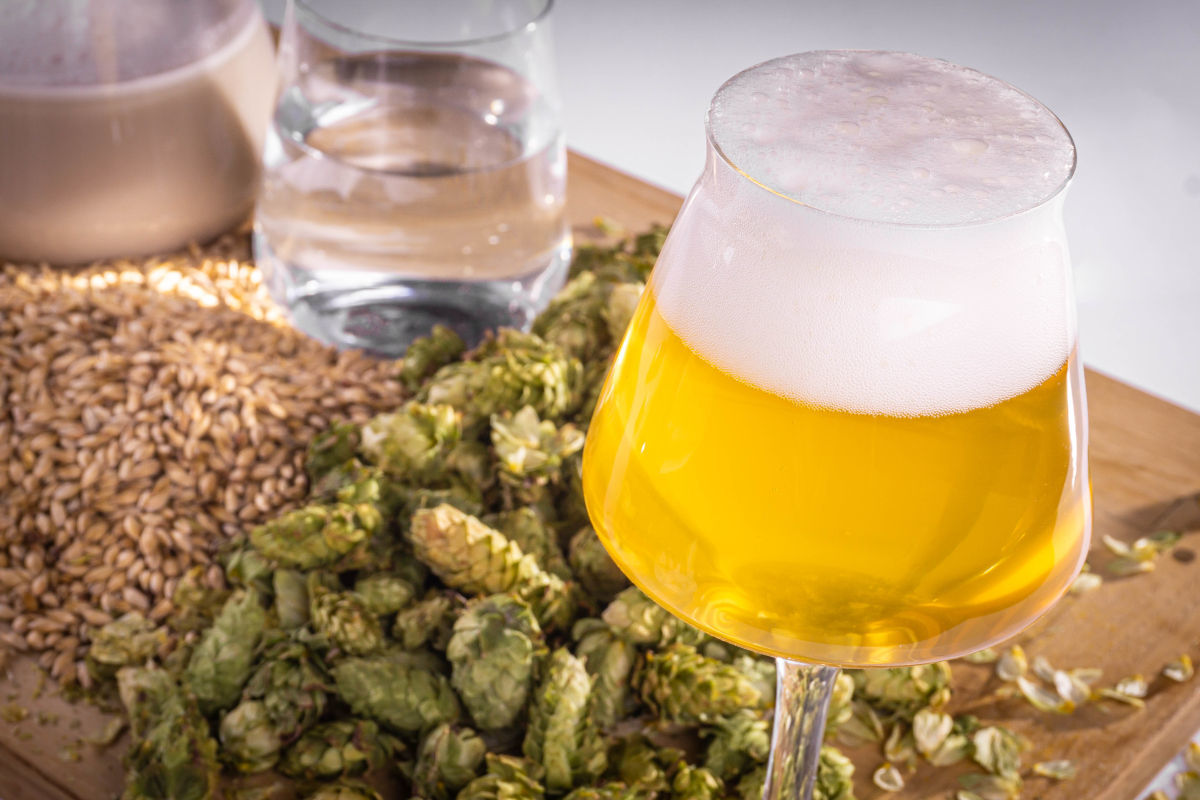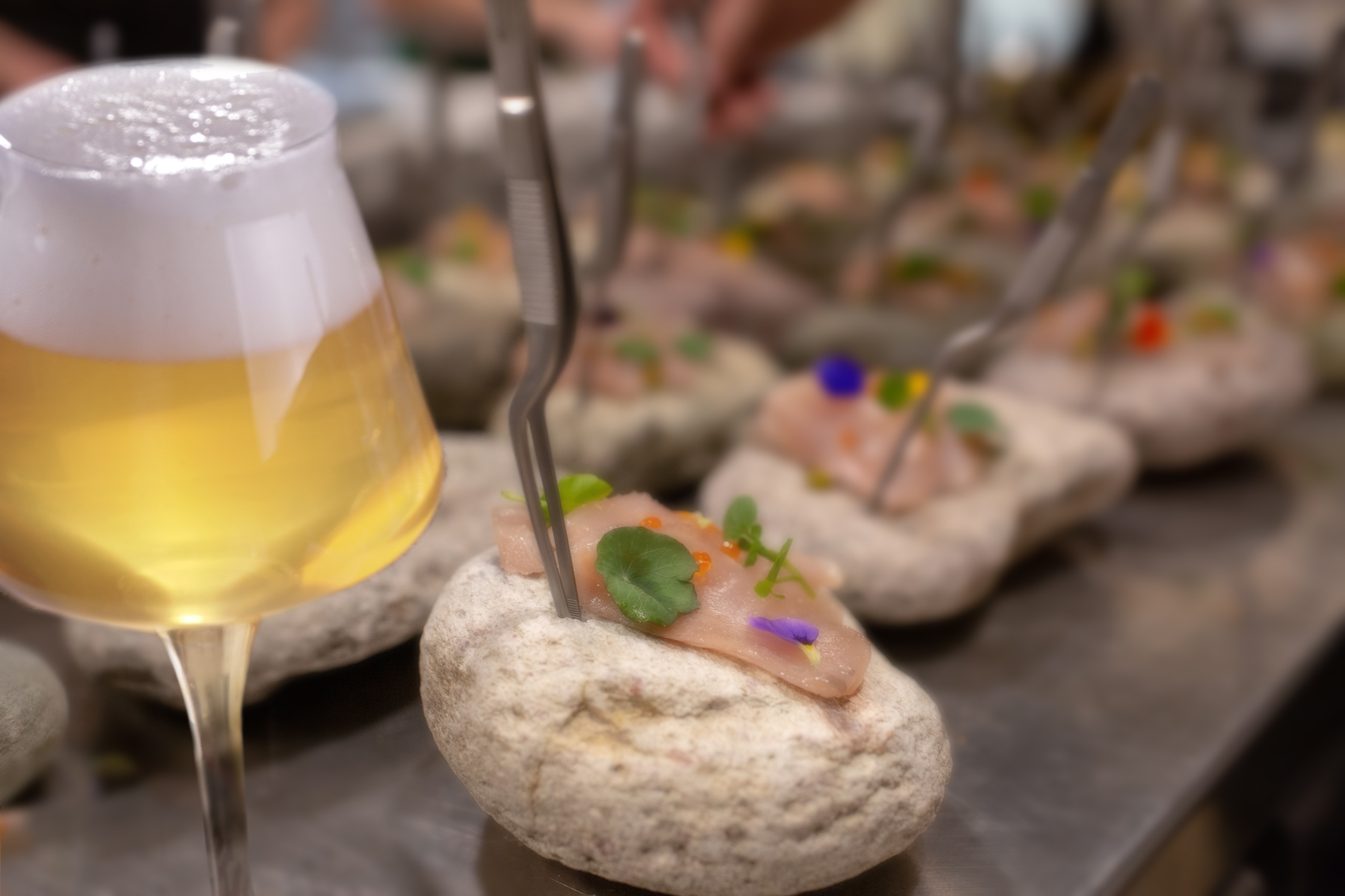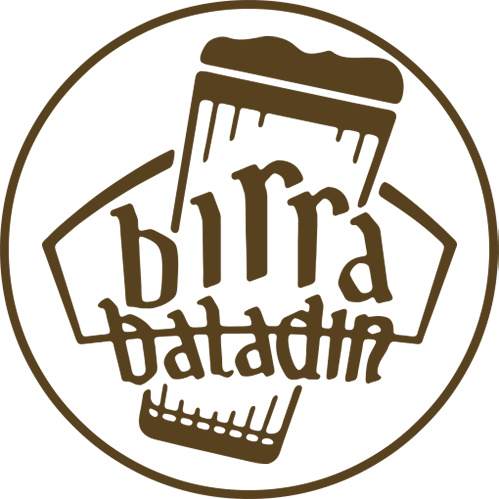What are Blonde Ales made of? The ingredients

The boundless international beer making landscape includes very different beer styles. Some impress for their peculiar brewing techniques, or the special ingredients added to the standard ones - barley malt, hops, yeast and water. A classic example are Blanche beers - made with wheat and flavored with coriander and bitter orange zest - but we could mention many other styles, such as Berliner Weisse, Gose, Kriek beers or Italian Grape Ales, all made with rather unusual ingredients.
Most types of beer, however, are made only with the four basic ingredients. It is fascinating to see how many different styles have developed from such a small number or variables, at least apparently. Even with the most straightforward beers - those that aim at being easy to drink, without any “special effects” - it is interesting to look at their ingredients to understand their distinctive features.
In Belgium, Blonde Ales were purposely created to respond to the growing success of Pils and, in general, of light-colored Lagers. Just like their “cousins”, Blonde Ales also have a golden color, are balanced and extremely easy to drink. But they also have a bold character and express the
peculiarities of the local brewing tradition. Despite the many common traits, they are very different from Pils beers for various reasons. Sure enough, both Pils beers and “Belgian blondes” only use the four basic ingredients of beer-making. But let’s take a closer look at them to understand the distinctive features of Blonde Ales.
Yeast
The most relevant difference lies in the type of yeast used. Blonde Ales, as mentioned, are the answer of Belgian brewers to light-colored, continental Lagers. But, in contrast to them, they are top fermented beers. In other words, Belgian brewers adapted the typical characteristics of Pils to their taste and brewing habits. The yeast used in Blonde Ales belongs to the Saccharomyces cerevisiae species. The chosen strains actively participate in developing the aromatic profile with the production, among other things, of esters and phenols (released during the fermentation process), which give delicate fruity and spicy notes.
Belgian brewers are masters in extracting scents and aromas from yeasts. In Blonde Ales, however, their contribution, even if easily detectable, is rather limited if compared to other local styles. In brief, Blonde Ales have a very clean aromatic profile: an essential trait to be easy to
drink and suited to all occasions.
Barley malt
Most of the fermentable basis is usually made of Pils barley malt - clearly one of the key ingredients of the Czech style by the same name that Blonde Ales have somehow taken inspiration from. In the case of Belgian Blonde Ales, though, we also find a small percentage of aromatic
malts which might impact on the scent, taste, and color of the beer - Blonde Ales may sometimes have a more intense color than Pils beers.
Hops
Traditionally, Blonde Ales are made with noble European hops, or traditional varieties. The most widely used ones are Saaz – something else they share with Pils beers – Styrian Goldings and East Kent Goldings. In the classic version of the style, hops have a limited impact on the
organoleptic profile of the beer, which, instead, is largely determined by the yeast.
But things change if we look at the modern versions of Blonde Ales, made by recent breweries opened in the midst of the international craft beer revolution. In these cases, brewers try to bring out the hops, pushing the bitterness - Blonde Ales are generally sweet, while relatively dry
- and enriching the bouquet with notes that come from this ingredient.
Some “new generation” Blonde Ales can therefore present notes of citrus or exotic fruit given by modern hops varieties grown in The United States, New Zealand or other emerging countries.
Spices
Finally, even if this is not a consolidate habit, some Blonde Ale recipes can also include spices (coriander, ginger, zests, etc.) to enrich the aromatic profile. Often, however, some notes that are typically associated to spices are actually released by the top fermenting yeasts.




